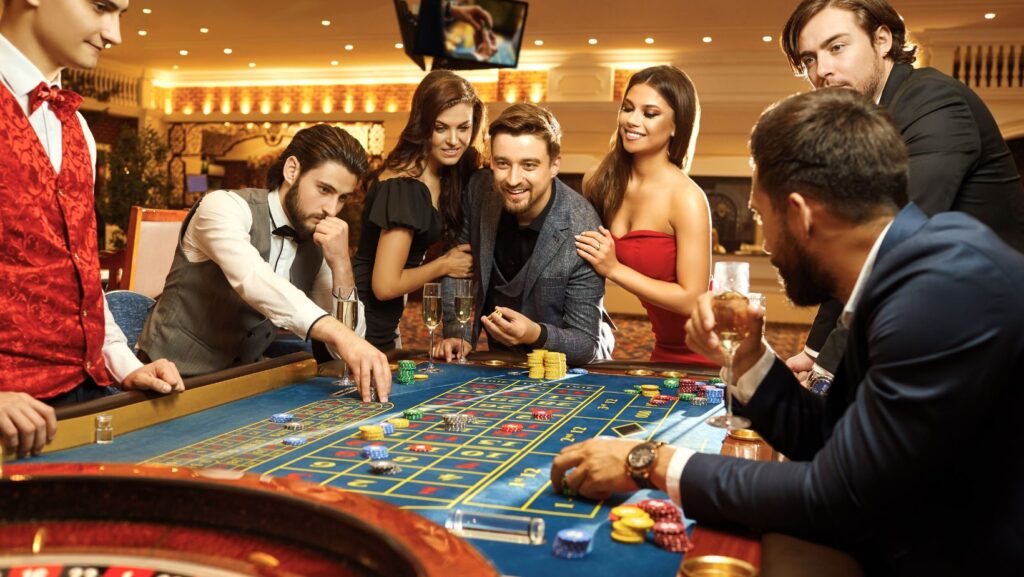Gambling is an activity that has been intertwined with human history for thousands of years, spanning cultures, continents, and centuries. From ancient civilizations to the glittering casinos of Las Vegas and Macau, the evolution of gambling reflects the changing tides of society, technology, and human nature. In this blog, we’ll take a journey through time to explore the origins of gambling, tracing its evolution from rudimentary games of chance to the sophisticated, high-tech casinos we know today.
The Origins of Gambling: Ancient Civilizations
Gambling’s roots can be traced back to ancient civilizations, where games of chance were a common pastime. Archaeological evidence suggests that early forms of gambling were present in various ancient societies.
- Mesopotamia (c. 3000 BCE)
- One of the earliest known gambling artifacts is a set of six-sided dice discovered in Mesopotamia, dating back to around 3000 BCE. These dice, made from bones, were likely used in simple betting games. Mesopotamians, like many ancient cultures, believed in the influence of fate and chance, and gambling was seen as a way to interact with the whims of the gods.
- Ancient Egypt (c. 2000 BCE)
- In ancient Egypt, gambling was also a popular activity. The Egyptians enjoyed games like Senet, which was not only a game of strategy but also had elements of luck, making it a form of gambling. Board games were often placed in tombs, signifying their importance in both life and the afterlife.
- Ancient China (c. 2300 BCE)
- The Chinese have a long history of gambling, with evidence suggesting that rudimentary games of chance, such as the use of tiles, were prevalent as early as 2300 BCE. Keno, a lottery-like game, is believed to have originated in China and was even used to help fund the construction of the Great Wall.
- Ancient Greece and Rome

- In ancient Greece and Rome, gambling was a widely accepted pastime despite being officially frowned upon in some circles. The Greeks enjoyed betting on athletic competitions and dice games, while the Romans were known for their love of gambling on gladiator battles and chariot races. Roman soldiers often played games of chance with knucklebones, which were the precursors to modern dice.
The Middle Ages: Gambling’s Rise and Regulation
As civilizations evolved, so did the complexity and popularity of gambling. During the Middle Ages, gambling became more widespread across Europe, but it also began to face regulation and, at times, suppression.
- The Spread of Card Games
- Playing cards are believed to have originated in China around the 9th century before spreading to the Middle East and Europe. By the 14th century, card games had become a popular form of entertainment across Europe. These games laid the foundation for many of the card-based gambling games we know today, such as poker and blackjack.
- Gambling Houses
- The first known gambling houses, precursors to modern casinos, began to appear in Europe during the Renaissance. In 1638, the Ridotto was established in Venice, Italy, as a government-sanctioned gambling house. It offered games like biribi and bassetta, providing a controlled environment for gambling.
- Religious and Legal Restrictions
- Despite its popularity, gambling was often viewed with suspicion by religious and political authorities. In many parts of Europe, strict laws were enacted to curb gambling, and those caught gambling illegally could face severe punishments. However, these restrictions often led to the rise of underground gambling activities.
The Birth of Modern Casinos
The 18th and 19th centuries marked the beginning of the modern casino era, with gambling becoming more organized and widespread.
- Monte Carlo and the Casino Era
- The first modern casino, as we would recognize it today, was established in Monte Carlo in 1863. The Casino de Monte-Carlo became synonymous with luxury and sophistication, attracting wealthy gamblers from across Europe. It set the standard for what a casino could be—a glamorous destination for entertainment and high-stakes gaming.
- The United States and the Wild West
- As European settlers arrived in America, they brought their gambling traditions with them. Gambling thrived in the saloons of the Wild West, where games like poker, faro, and roulette were popular. However, as gambling grew, so did concerns about cheating and lawlessness, leading to periodic crackdowns and bans.

- Las Vegas: The Gambling Capital
- The legalization of gambling in Nevada in 1931 paved the way for Las Vegas to become the world’s gambling capital. Over the decades, Las Vegas transformed from a dusty desert town into a neon-lit playground, home to some of the most famous casinos in the world, such as the Bellagio, Caesars Palace, and the MGM Grand.
The Digital Revolution: Online Casinos
The late 20th and early 21st centuries have seen the most significant transformation in gambling with the advent of the internet. Online casinos have brought the thrill of gambling to millions of players worldwide, allowing them to play from the comfort of their own homes.
- The Rise of Online Casinos
- The first online casino was launched in 1994, thanks to advancements in technology and the establishment of the Free Trade and Processing Zone in Antigua and Barbuda, which allowed licenses for online gambling. Since then, the online gambling industry has exploded, with thousands of sites offering everything from poker to slots.
- New Online Casino Trends
- Today, the online casino industry continues to innovate, with new online casino platforms offering features like live dealer games, mobile compatibility, and virtual reality experiences. These advancements have made online gambling more immersive and accessible than ever before, catering to a new generation of players.
Conclusion: The Future of Gambling
From ancient dice games to the digital casinos of today, gambling has come a long way. It has survived through centuries of change, adapting to new cultures, technologies, and societal norms. As we look to the future, the gambling industry shows no signs of slowing down. With the continued evolution of online casinos, the integration of cryptocurrencies, and the development of more sophisticated gaming technologies, the world of gambling will undoubtedly continue to grow and captivate players around the globe.




